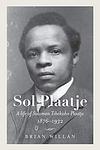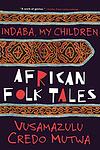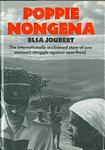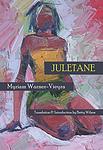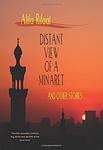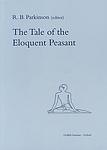Genres
Date Range
Reading Statistics
Click the button below to see how many of these books you've read!
Download
If you're interested in downloading this list as a CSV file for use in a spreadsheet application, you can easily do so by clicking the button below. Please note that to ensure a manageable file size and faster download, the CSV will include details for only the first 500 books.
Download-
76. Facing Mount Kenya by Jomo Kenyatta
"Facing Mount Kenya" is a comprehensive study of the Kikuyu people, their history, culture, and traditions, written by Jomo Kenyatta, a prominent figure in Kenya's struggle for independence. The book explores various aspects of Kikuyu society, including their political organization, economic activities, social structure, and religious beliefs. Kenyatta's work provides valuable insights into the Kikuyu way of life and offers a critical analysis of the impact of colonialism on their society.
-
77. The History Of The Yorubas by Reverend Samuel Johnson
"The History of the Yorubas" is a comprehensive account of the rich cultural heritage and historical development of the Yoruba people, a major ethnic group in Nigeria. Written by Samuel Johnson, the book delves into the origins, traditions, and societal structures of the Yoruba, exploring their religious beliefs, political systems, and significant historical events. Through meticulous research and detailed storytelling, Johnson provides valuable insights into the Yoruba civilization, making this book an essential resource for anyone interested in African history and culture.
-
78. Native Life In South Africa by Sol Plaatje
"Native Life In South Africa" is a firsthand account of the experiences and struggles of the native African population in South Africa during the early 20th century. The author, Sol Plaatje, provides a powerful and insightful narrative that sheds light on the social, political, and economic injustices faced by the indigenous people under the oppressive system of colonialism. Through his vivid descriptions and personal anecdotes, Plaatje highlights the resilience and determination of the native population in their fight for equality and justice.
-
79. Amal'e Zulu by B.W. Vilakazi
"Amal'e Zulu" is a poignant and captivating novel that delves into the complexities of Zulu culture and tradition. Set in a rural village in South Africa, the story follows the life of a young Zulu girl named Amal'e as she navigates the challenges of womanhood, love, and societal expectations. With vivid descriptions and rich character development, the author beautifully captures the essence of Zulu customs, rituals, and beliefs, offering readers a glimpse into a vibrant and often misunderstood culture.
-
80. Nós Os Do Makulusu by José Luandino Vieira
"Nós Os Do Makulusu" is a powerful and thought-provoking novel that delves into the lives of a group of Angolan prisoners during the colonial era. Set in the infamous Makulusu prison, the story follows the inmates as they navigate the harsh realities of confinement, exploring themes of identity, resistance, and the resilience of the human spirit. Through vivid and evocative prose, the author sheds light on the injustices and brutality faced by those imprisoned, while also capturing the camaraderie and solidarity that emerges among the prisoners. This compelling narrative offers a poignant reflection on the complexities of the human condition and the enduring power of hope.
-
81. Tales of Amadou Koumba by Birago Diop
"Tales of Amadou Koumba" is a collection of traditional Senegalese folktales that delve into the rich oral heritage of West Africa. Narrated by the griot Amadou Koumba, these stories explore themes of human nature, societal norms, and the supernatural, weaving a vibrant tapestry of culture and wisdom. The tales are characterized by their moral lessons, intricate relationships between humans and the spiritual world, and the timeless struggle between tradition and modernity. Through captivating storytelling, the book preserves and celebrates the profound wisdom and cultural depth of Senegalese lore, offering insights into the values and beliefs of the society.
-
82. The Blood Knot by Athol Fugard
"The Blood Knot" is a powerful play that explores the complex relationship between two half-brothers, Morris and Zachariah, who live together in a small shack in apartheid-era South Africa. Morris, who is light-skinned, dreams of escaping their impoverished life, while Zachariah, who is dark-skinned, is content with their routine. As tensions rise and their differences become more apparent, the brothers navigate themes of identity, race, and the limitations imposed by society, ultimately leading to a shocking and heartbreaking climax.
-
83. Ingqumbo Yeminyanya by Archibald Campbell Jordan
"Ingqumbo Yeminyanya" is a powerful and thought-provoking novel set in South Africa during the early 20th century. It explores the complexities of race, identity, and the struggle for freedom through the lives of its diverse characters. With rich storytelling and vivid descriptions, the book delves into the harsh realities of apartheid and the profound impact it has on individuals and communities. Through its compelling narrative, the novel challenges readers to confront the deep-rooted prejudices and injustices that plagued the nation, while also highlighting the strength and resilience of the human spirit in the face of adversity.
-
84. Nedjma by Kateb Yacine
"Nedjma" is a powerful and haunting novel set in Algeria during the French colonial period. It tells the story of four young men from different backgrounds who become captivated by the enigmatic Nedjma, a woman who represents the spirit and struggle of their country. As they each pursue their own desires and dreams, their lives become entwined with Nedjma's, leading to a tragic and heart-wrenching climax. Through vivid language and evocative imagery, the book explores themes of identity, love, and the search for freedom in a society torn apart by oppression.
-
85. Indaba, My Children by Vusamazulu Credo Mutwa
"Indaba, My Children" is a captivating and enlightening collection of African folklore, myths, and legends, passed down through generations. Through vivid storytelling, the book explores the rich cultural heritage of Africa, delving into topics such as creation stories, ancestral spirits, and the power of dreams. With a blend of wisdom, spirituality, and historical insights, the author invites readers to embark on a journey of discovery, offering a deeper understanding of African traditions and the interconnectedness of all living beings.
-
86. Antériorité Des Civilisations Nègres by Cheikh Anta Diop
"Antériorité Des Civilisations Nègres" by Cheikh Anta Diop explores the history and achievements of African civilizations, challenging the prevailing Eurocentric narrative that downplays the contributions of African cultures. Diop presents a compelling argument for the existence of advanced African civilizations and their impact on world history, drawing on linguistic, archaeological, and anthropological evidence. Through meticulous research, he highlights the intellectual, scientific, and cultural achievements of African societies, ultimately reclaiming their rightful place in the annals of human civilization.
-
87. House Of Hunger by Dambudzo Marechera
"House of Hunger" is a powerful collection of stories and poems that vividly depict the struggles and despair experienced by the marginalized individuals living in post-colonial Zimbabwe. Through a raw and fragmented narrative style, the author explores themes of poverty, violence, and the loss of cultural identity, providing a haunting portrayal of a society grappling with the aftermath of colonialism. Marechera's poignant and thought-provoking work serves as a powerful critique of social and political injustices, leaving readers both disturbed and enlightened.
-
88. Die Swerdjare Van Poppie Nongena by Elsa Joubert
"Die Swerdjare Van Poppie Nongena" is a powerful and poignant novel that tells the story of Poppie, a black South African woman, during the apartheid era. Set in the 1960s, Poppie faces immense challenges as she navigates the oppressive system that separates her from her family and forces her to endure constant discrimination and hardship. Through Poppie's experiences, the book explores themes of resilience, love, and the human spirit's ability to triumph in the face of adversity.
-
89. The Abandoned Baobab by Ken Bugul
The book is a poignant autobiographical novel that delves into the life of a young African woman who feels disconnected from her roots and culture after returning from studies in Europe. Struggling with a sense of alienation and identity crisis, she spirals into a life of excess and despair in the city, seeking solace in relationships and substances. Her narrative is a raw and honest exploration of postcolonial identity, womanhood, and the search for meaning in a world where she feels like an outsider both in her home country and abroad. The title symbolizes her sense of abandonment and the deep longing for a sense of belonging and understanding.
-
90. Juletane by Myriam Warner-Vieyra
The novel revolves around the tragic story of a young Antillean woman who, through her diary entries, reveals the harrowing details of her life and marriage. After moving to Africa to be with her new husband, she finds herself isolated and trapped in a world of deception and disillusionment. Her husband's indifference and infidelity, coupled with her growing sense of alienation in a foreign land, lead her down a path of despair. The narrative unfolds as her diary is read by another woman, who empathizes with her struggles and reflects on the complexities of identity, belonging, and the painful legacy of colonialism.
-
91. Unity And Struggle by Amilcar Cabral
"Unity And Struggle" explores the concept of national liberation and the fight against colonialism in Africa. The book delves into the importance of unity among oppressed peoples and the necessity of armed struggle to achieve true independence. Through a combination of historical analysis and personal experiences, the author emphasizes the need for a comprehensive understanding of the social, economic, and political factors that contribute to the liberation struggle. With a passionate call for solidarity and self-determination, "Unity And Struggle" serves as a powerful manifesto for those seeking freedom from oppression.
-
92. Distant View Of A Minaret by Alifa Rifaat
The book is a collection of short stories that delve into the lives of women in contemporary Egyptian society, offering a poignant and often stark portrayal of the challenges they face. Through the lens of various female protagonists, the stories explore themes of sexuality, marriage, fidelity, and the role of women within the constraints of a patriarchal culture. The narratives often highlight the inner lives and suppressed desires of these women, revealing the gap between personal aspirations and societal expectations. The title story epitomizes the collection's essence, presenting a woman's reflection on her unfulfilling marriage and her yearning for spiritual and emotional fulfillment, symbolized by the distant view of a minaret.
-
93. Caitaani Mutharaba Ini by Ngugi wa Thiong'o
"Caitaani Mutharaba Ini" is a captivating novel that explores the complexities of human nature and the consequences of one's actions. Set in a small African village, the story follows the lives of various characters who are entangled in a web of love, betrayal, and power struggles. As the narrative unfolds, the book delves into themes of corruption, greed, and the clash between tradition and modernity, offering a thought-provoking reflection on the challenges faced by individuals in a rapidly changing society.
-
94. The Stillborn by Zaynab Alkali
"The Stillborn" is a poignant narrative that explores the lives of women in a traditional African society, focusing on their struggles, resilience, and the quest for personal identity. The story delves into the complexities of polygamy, cultural expectations, and the impact of modernity on rural communities. Through the experiences of its female protagonists, the novel highlights the challenges faced by women in their pursuit of education, autonomy, and fulfillment in a male-dominated environment, ultimately offering a critique of the societal norms that stifle their growth and the transformative power of self-awareness and communal support.
-
95. A Bridge Through Time by Laila Abou-Saif
"A Bridge Through Time" is a poignant memoir that chronicles the author's life journey, weaving together the rich tapestry of her Egyptian heritage with her experiences in the Western world. The narrative delves into the complexities of identity, culture, and the sense of belonging as the author navigates the challenges of assimilation and the preservation of her roots. Through a series of reflective anecdotes and personal insights, the book offers a unique perspective on the universal quest for self-discovery and the reconciliation of disparate worlds, ultimately serving as a metaphorical bridge connecting the past with the present.
-
96. Xala by Ousmane Sembène
The book is a satirical novel set in post-independence Senegal, exploring themes of corruption, power, and tradition. It follows the story of a wealthy businessman who, after taking a third wife, finds himself afflicted with xala, a curse of impotence. His desperate attempts to cure his condition expose the hypocrisy and moral decay of the newly established elite, as he navigates the clash between modernity and traditional beliefs. The narrative serves as a critique of the neocolonialism that persists in African societies, highlighting the struggles between personal gain and societal progress.
-
97. The Steam Pig by James McClure
In this gripping crime novel, a tenacious detective navigates the complex social and racial landscape of 1970s South Africa to solve a perplexing murder case. The story begins when a body is discovered inside a clay pig sculpture, leading the detective on a trail through the seedy underbelly of the city. As he delves deeper into the investigation, he encounters a diverse cast of characters and uncovers a web of deceit and corruption. The detective's sharp instincts and unwavering commitment to justice drive him to unravel the mystery, despite the challenges posed by the apartheid-era setting.
-
98. The Tale Of The Eloquent Peasant by R. B. Parkinson
"The Tale of the Eloquent Peasant" is an ancient Egyptian story about a peasant, Khun-Anup, who is robbed by a dishonest nobleman, Nemtynakht. When Khun-Anup seeks justice, his eloquent pleas catch the attention of the high steward, who is impressed by his rhetoric and wisdom. The peasant is asked to continue his speeches so that the steward and other officials might learn from him, prolonging the resolution of his case. Eventually, the Pharaoh himself hears of Khun-Anup’s plight and intervenes, ensuring that justice is served, thereby highlighting themes of justice, eloquence, and the moral duties of the powerful.
-
99. Treatise Of Zera Yacob by Zera Yacob
The "Treatise of Zera Yacob" is a philosophical work from the 17th century, written by an Ethiopian philosopher during a period of self-imposed exile. The treatise presents a profound discourse on the nature of God, the pursuit of knowledge, and the application of reason and natural law in determining ethical truths. The author critiques various religious beliefs and practices, advocating for a rational approach to understanding the universe and the divine. His arguments emphasize the importance of personal inquiry and the critical examination of tradition and authority, making it a pioneering work in the field of philosophical rationalism within an African context.
-
100. Mi'raj Al Su'ud by Ahmad Baba al-Timbukti, Hunqick J.
"Mi'raj Al Su'ud" is a scholarly work that delves into the intellectual and spiritual journey of Ahmad Baba al-Timbukti, a prominent 16th-century scholar from Timbuktu. The book explores his contributions to Islamic thought, his legal and philosophical insights, and his enduring influence on West African scholarship. Through a detailed examination of his writings and teachings, the book provides a window into the rich academic and cultural milieu of Timbuktu during its golden age, highlighting the city's role as a significant center of learning in the Islamic world.
Reading Statistics
Click the button below to see how many of these books you've read!
Download
If you're interested in downloading this list as a CSV file for use in a spreadsheet application, you can easily do so by clicking the button below. Please note that to ensure a manageable file size and faster download, the CSV will include details for only the first 500 books.
Download

